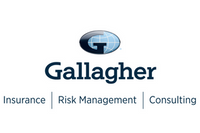Innovative ways to use shares to recognise and reward employees, not just executives

Although a thank you is always nice to receive, you can’t get away from the fact that cash in the bank is one of the best motivators.
Executives typically buy into incentive arrangements like equity plans because they have a degree of control over the outcomes. Non-executive employees won’t necessarily feel that way, so it’s important to consider the most appropriate ways your staff can be incentivised that work best for your business. People assume share plans to be rigid and formal arrangements. And whilst that may be true from regulatory, tax planning, or control perspectives, it doesn’t mean the ways in which employees obtain their rewards have to be.
Typically, core corporate philosophies will determine how innovative the share plan reward mechanisms can be. But consider what could happen if these corporate philosophies were reimagined and translated into meaningful employee rewards.
Empowerment – participant choice
Employees are given the choice to select the basis for their rewards from a menu. Doing so enables them to align rewards to individual preferences, needs and risk profile. This has been effective in terms of resurrecting an existing plan and distinguishing a business from its competitors, helping to retain and recruit talent.
Interestingly, less than 6% of global companies offer participants a choice and for most of those, choice is limited to a small number of participants.
Tax efficiency is not necessarily the only or overriding objective
Whilst it may make financial sense to obtain tax efficiencies through implementing tax approved plans, it’s not essential. A company’s objectives may not match the requirements of a tax approved scheme. In which case, the company must make a cost vs benefit vs philosophy decision and do what’s right for the company and its employees.
A generous and meaningful share plan arrangement is likely to result in greater staff take up and engagement, which should translate in increased plan effectiveness.
Keep it simple
‘Innovation’ doesn’t mean ‘more complex’. Simpler and consistent plan design facilitates implementation across different jurisdictions on the same basis.
Technology
With technological advances comes the ability for companies to introduce new and innovative ways of engaging with staff and increasing participation and engagement. It can also take the hard work out of data collation, management and processing. Younger employees will feel included if they can continue to manage all aspects of their lives from their mobile device and will be incentivised if they can obtain ‘rewards’ as early as possible.
Use technology to overcome practical difficulties, for example facilitating improved remote access to share plan information. Implementing a global nominee service enables staff to hold shares electronically, no matter where they’re based, and manage how those shares are registered. It means enrolment can be consistent across jurisdictions with targeted, tailored, and country-specific communications and plan documentation.
Rewarding loyalty
The typical annual bonus cycle is a short-term reward process which doesn’t usually align employees to a company’s longer-term objectives. But linking the two could solve this conundrum.
This can be done by introducing a compelling reward mechanism where employees agree to invest a proportion of their target bonus in the shares of the company. Encouragement comes in the form of the multiple of the matching shares provided by the company. As a guide, a generous multiple would be 10 times. The retention period could be at least three years and the conditions for success shouldn’t be too onerous. Another mechanism companies can employ which rewards loyalty is increasing rewards the longer they are retained.
Employers should also be comfortable to move away from the more traditional ways of calculating benefits, to show the company has a good understanding of the role employees play. These could include customer service experiences (NPS score), repeat sales, or reduced manufacturing errors targets.
Cost versus desired outcomes
If your business sets out to achieve high participation rates and strongly aligns employees with the company objectives, you could consider providing high discounts, generous matching contribution multiples, low investment risk, ease of enrolment, exit, and change of contribution, and inbuilt tax compliance reporting.
Multiple mediums
Communications on multiple platforms across various media will enable companies to better connect with the wide variety of staff. True innovation incorporates targeted and personalised messages via a variety of channels, engaging individuals and prompting identified calls to action.
Value protection
Companies should consider helping participants retain and protect reward value. Offerings can be made more attractive by removing the issues which negatively affect participation levels. Currency exchange rate protection is one such key element for employees in countries whose currency is susceptible to volatility.
In summary
Whilst tax approved arrangements provide companies with financial benefits, they are unlikely to be closely aligned with a company’s objectives. However, there are a wide variety of ways companies can engage employees by rewarding and incentivising staff in innovative and meaningful ways, driven by their core philosophies. And a company that implements such packages (which include tax planning) is likely to experience not only greater employee engagement but associated improved financial performance too.
The author is Tim Lowe, head of share plans at Buck.
This article is provided by Buck.
Supplied by REBA Associate Member, Gallagher
Gallagher is a global, integrated HR consulting, benefits administration & technology services provider.







